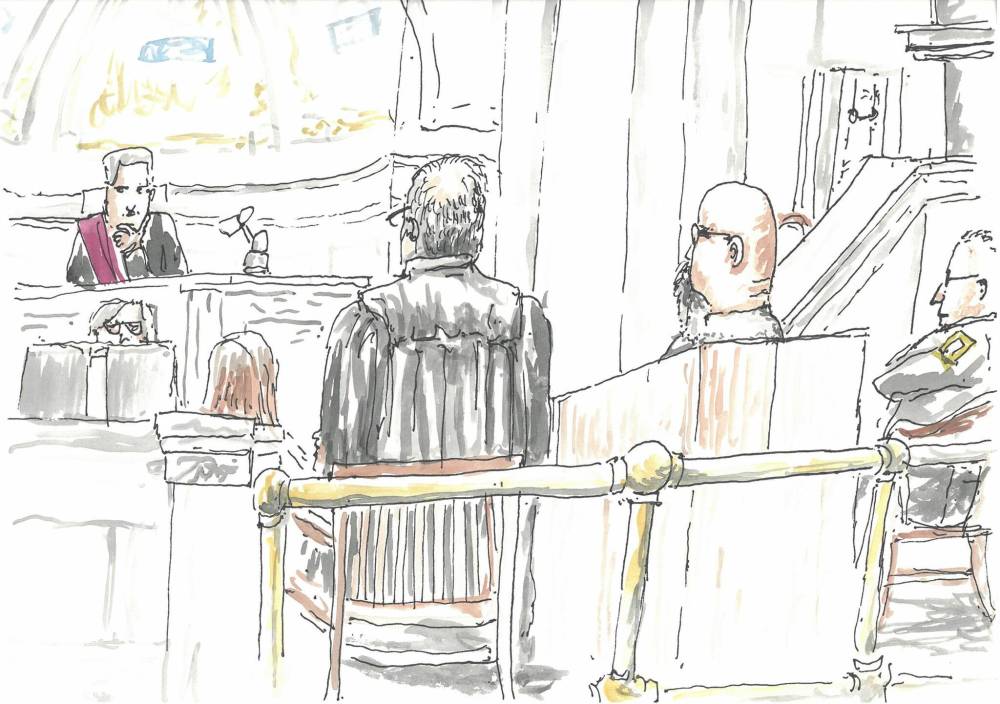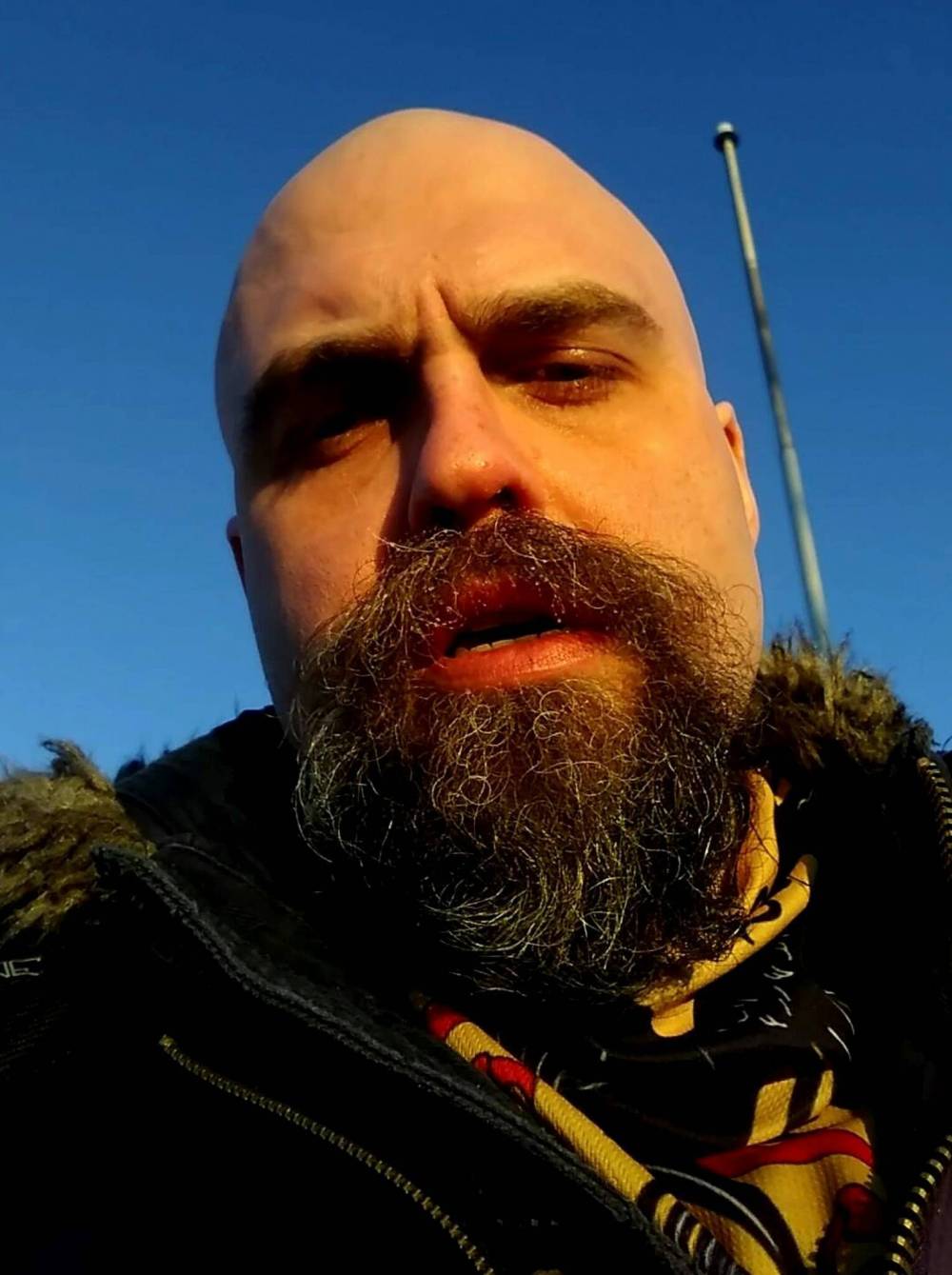Lawyers to argue accused serial killer not criminally responsible
Advertisement
Read this article for free:
or
Already have an account? Log in here »
To continue reading, please subscribe:
Monthly Digital Subscription
$0 for the first 4 weeks*
- Enjoy unlimited reading on winnipegfreepress.com
- Read the E-Edition, our digital replica newspaper
- Access News Break, our award-winning app
- Play interactive puzzles
*No charge for 4 weeks then price increases to the regular rate of $19.95 plus GST every four weeks. Offer available to new and qualified returning subscribers only. Cancel any time.
Monthly Digital Subscription
$4.99/week*
- Enjoy unlimited reading on winnipegfreepress.com
- Read the E-Edition, our digital replica newspaper
- Access News Break, our award-winning app
- Play interactive puzzles
*Billed as $19.95 plus GST every four weeks. Cancel any time.
To continue reading, please subscribe:
Add Free Press access to your Brandon Sun subscription for only an additional
$1 for the first 4 weeks*
*Your next subscription payment will increase by $1.00 and you will be charged $16.99 plus GST for four weeks. After four weeks, your payment will increase to $23.99 plus GST every four weeks.
Read unlimited articles for free today:
or
Already have an account? Log in here »
Hey there, time traveller!
This article was published 01/05/2024 (623 days ago), so information in it may no longer be current.
The defence for a Winnipeg man on trial for the slayings of four Indigenous women will argue he was not criminally responsible for the crimes.
The revelation came during closing arguments in a hearing to determine whether Jeremy Skibicki should be allowed to have his trial heard by a judge alone, rather than a jury.
Skibicki, 37, has pleaded not guilty to four counts of first-degree murder in the May 2022 slayings of three Indigenous women — Morgan Harris, Rebecca Contois and Marcedes Myran — as well as a fourth unidentified woman who was killed in March 2022. She has been named Buffalo Woman (Mashkode Bizhiki’ikwe) by Indigenous leaders.
Skibicki’s lawyers argue extensive media coverage of the case has biased the jury pool such that he would not receive a fair trial unless tried by a judge alone.
COURT SKETCH BY JAMES CULLETON King’s Branch Justice Glenn Joyal oversees the opening of accused serial killer Jeremy Skibicki’s trial Monday.
Confirmation of the “not criminally responsible” defence came as defence lawyer Alyssa Munce was responding to comments by King’s Bench Justice Glenn Joyal. He noted high-profile trials that had resulted in acquittals, including that of Raymond Cormier, who was charged with second-degree murder in the 2014 death of Indigenous teen Tina Fontaine.
“The Cormier case is significantly different than the case we have before the court,” Munce said.
“The defence is one of (not criminally responsible). This isn’t a case where we are looking at the evidence to determine whether or not Mr. Skibicki committed those offences. This is a situation where we are proffering a defence of NCR.”
Questions posed at jury selection last week suggested a not criminally responsible defence was under consideration. A defence-commissioned poll used to support its position of juror bias also suggested that line of defence.

On Tuesday, court heard testimony from Florida psychologist and university professor Dr. Christine Ruva, who has extensively researched the topic of juror bias and its effect on decision-making. Ruva said studies show jurors exposed to pretrial publicity in high-profile cases develop unconscious biases that are nearly impossible to eradicate and compromise the accused’s right to a fair trial.
Of 906 people polled in February, 73 per cent of respondents who were aware of the case said they had a negative impression of Skibicki, while 61 per cent said they had an opinion as to his guilt. Of those who said they had an opinion whether he was guilty or not guilty, 90 per cent expressed the opinion he was guilty.
Of the 14 jurors (including two alternates) selected last week for Skibicki’s trial, nine said they were aware of the case and five said they were not.
Ruva, who formulated the poll with Skibicki’s defence team, said she was aware of 405 news stories about the case as of Monday, many of which included descriptions of Skibicki’s alleged character, emotionally charged interviews with his alleged victims’ families and extensive coverage of protests that demanded a search of local landfills for victims’ remains.
Munce argued the unending media attention in the Skibicki case distinguishes it from other high-profile prosecutions that fall off the public radar in the months leading up to trial.
“That is a precedent in Manitoba, for (media attention) to rise to that level. There is no other case like this.”–Defence lawyer Alyssa Munce
Other than a break between his arrest for Contois’s slaying in May 2022 and his arrest on three more murder charges in December of that year, “Mr. Skibicki was in the news constantly,” Munce said Wednesday. “That is not the usual high-profile case.”
Search-the-landfill protests dominated the news and became an issue in the 2023 Manitoba election, which kept Skibicki in the media spotlight, Munce said.
“That is a precedent in Manitoba, for (media attention) to rise to that level,” she said. “There is no other case like this.”
Prosecutors argued Ruva’s research depended largely on mock trials and scenarios and that she has no experience with the Canadian legal system, which places far greater restrictions on the release of public information in advance of trials.
Ruva’s position that any publicity taints a jury “is tantamount to her saying you just can’t have jury trials,” said Crown attorney Charles Murray.
“If we’re to accept her position, it would be to jettison… the principle of impartiality,” he said.
Joyal will deliver his decision on the defence motion Friday. Jurors are scheduled to begin hearing evidence in the case May 8.
dean.pritchard@freepress.mb.ca

Dean Pritchard is courts reporter for the Free Press. He has covered the justice system since 1999, working for the Brandon Sun and Winnipeg Sun before joining the Free Press in 2019. Read more about Dean.
Every piece of reporting Dean produces is reviewed by an editing team before it is posted online or published in print — part of the Free Press‘s tradition, since 1872, of producing reliable independent journalism. Read more about Free Press’s history and mandate, and learn how our newsroom operates.
Our newsroom depends on a growing audience of readers to power our journalism. If you are not a paid reader, please consider becoming a subscriber.
Our newsroom depends on its audience of readers to power our journalism. Thank you for your support.
History
Updated on Wednesday, May 1, 2024 2:00 PM CDT: Replaces photo
Updated on Wednesday, May 1, 2024 4:45 PM CDT: Additional information included










